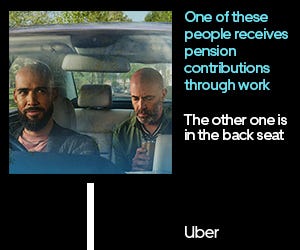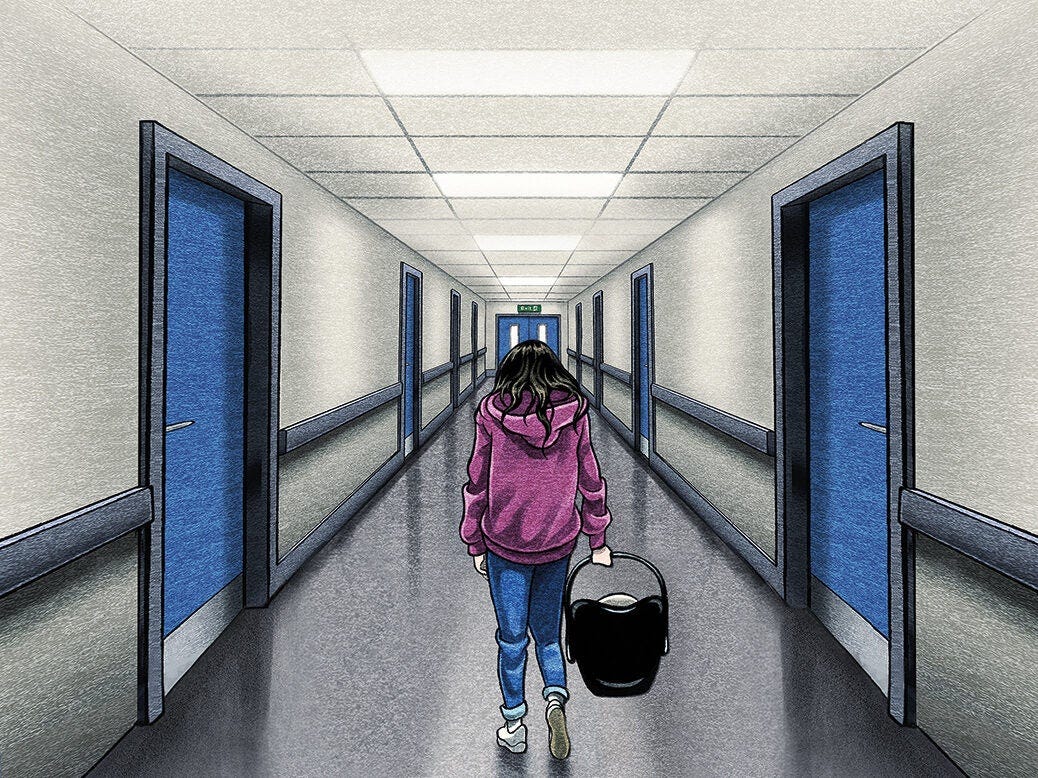The Saturday Read: Glory days
Inside: Rushdie, a searing account, the Cass review, luxury beliefs, and much else.
Good morning. Welcome to the Saturday Read, the New Statesman’s weekly guide to politics, culture, books, and ideas. This is Harry, along with Jason, Pippa and George.
Scroll on for this week’s picks, with three from Jason to start and five from George thereafter. I highlight a few more to end. Pippa is away on a road trip at present.
On Thursday night here in New York, Salman Rushdie was celebrated at one of Graydon Carter’s Air Mail book parties at the Waverly Inn, where the quiet glamour of twentieth century magazine culture lives on. Gay Talese, 92 and still impeccably tailored, was on hand to greet Rushdie, now 76. Andrew Wylie, Rushdie’s agent, turned up wearing a cloth cap and chomping on a cigar.
It is surreal to meet Rushdie – whose new memoir, Knife, is out this week – having thought he had died on 12 August 2022. Who survives being stabbed so many times? But Rushdie did. He was being held back from fielding questions by his publicist, but he was warm in conversation, charmed by attending “a book party with no books and no speeches”. A bid to get Rushdie to choose between the talents of Hitchens and Amis – his two late friends, and former NS colleagues – proved fruitless.
The NS is hiring a new position: we are seeking an experienced writer-editor to join our team. Please pass this on to anyone you think may be interested, or click to apply.
A busy week for our estimable associate editor Hannah Barnes, who published two essential pieces. The first is the magazine cover story, a searing memoir about the trauma she experienced while giving birth to her first child and how afterwards, as she recovered from surgery, she felt abandoned by the NHS – an experience, as it turns out, shared by many women after giving birth.
Her second piece is surely the definitive response to the publication this week of the review by Dr Hilary Cass into the NHS youth gender identity services. In 2022, Barnes published her first book, Time to Think, a forensic, non-judgemental investigation into the collapse of the Gender Identity Development Service (Gids) for “gender-questioning” children at the Tavistock and Portman NHS Foundation Trust in north London. For Hannah, the Cass review is a final “damning indictment of how badly we, as a society, have let down a group of vulnerable and highly distressed children”.
She is especially scathing about those in the NHS, the government and the media who were told what was going on – indeed “who saw what was going on and did nothing”. She is notably critical of the Guardian, which received a letter from two worried clinicians in the summer of 2017, setting out their concerns. “Everyone I see is in pain and in distress,” they wrote. “Gender dysphoria is real and painful and sometimes hellish. There are multiple reasons for it, and there will be different ways of managing it. One such meaning and ‘solution’ might be to transition, but these are children not adults…” No one from the Guardian responded.
“Are there any right-wing luxury beliefs?” A spiky interview by Sophie McBain with Rob Henderson, whose memoir of a dysfunctional childhood, Troubled, has been embraced by conservatives and compared to JD Vance’s Hillbilly Elegy. (Read Sohrab’s recent New Statesman interview with Vance here.)
Henderson is good on the complacency, coded snobberies and self-congratulatory righteousness of the liberal overclass whom he first encountered at Yale. But what exactly are “luxury beliefs”, a phrase popularised by Henderson. Are abortion bans?
1—“What is that underlying dynamic we’re not paying enough attention to?”
How do you solve a problem like Britannia? Certainly not without knowing what the hell Britain actually is, answers Will Hutton in This Time No Mistakes: How to Remake Britain. Ed Conway finds that the new book, “represents the beginning of a new, urgent debate”. GM
For all that we like to fixate on the latest economic storm, the success or otherwise of our nations is just as likely to be determined by invisible, longer-term factors. Energy, institutions, culture. These seismic forces operate so far in the background that they are rarely incorporated into economic models, or for that matter the conventional wisdom. How does the American economy manage to outperform Europe year after year? There are plenty of interesting theories but you might just as well say: it’s something in the water.
2—“These were the life-changing glory days.”
These fine pages have previously called David Bowie “a mild fad”. Suzi Ronson’s new book disagrees, and so does Suzanne Moore’s review. The book is a fresh addition to the Bowie shelf. Ronson joined the star’s tour after cutting his mum’s hair. She asks less what Bowie meant, and more who he was. GM
She had seen the impossibly exotic couple walking down Beckenham High Street, pushing a pram with long-haired David in a flowing gold midi dress. Soon, because of her hairdressing skills, she is taken into the Bowies’ inner circle at their Victorian villa Haddon Hall. This is another world of art, of books, cool people, exhibitionist sex, open marriages. She takes it all in and by 1972 is hired to go on the road with them on the Ziggy tour.
3—“First, Labour will form the next government. Second, it will quickly become one dominated by foreign affairs.”
It’s always great when Andrew Marr goes panoramic, and this week we have a full tour of Labour’s foreign policy apparatus. Keir Starmer will get his government, but Andrew thinks international matters will quickly dominate it. GM
India will be difficult for Labour; it has had historic connections with Pakistan, and Narendra Modi is nobody’s idea of a Guardian reader. But Labour now sees India in almost the same bracket as the United States – a country so important that a friendly relationship transcends normal politics.
As to the United States; what of the overarching “Trump problem”? David Lammy, generally cautious with language, called him a “woman-hating, neo-Nazi-sympathising sociopath” and a “profound threat to the international order”. Few New Statesman readers would disagree. But there is a weary belief in Labour high command that Joe Biden won’t make it, and that Trump is realistic enough to deal, however grumpily, with a Labour government sitting atop a big majority.
4—“My mother-in-law’s life ended as it began: in a Gazan refugee camp.”
The diary is Atef Abu Saif’s account of his mother-in-law’s death in Gaza. He and his wife could not find her a place in Rafah’s sole functioning hospital. She died in her refugee camp and her husband and daughter could not help her. GM
My mother-in-law died on 29 February in a tent in Rafah. The night before, my brother, Ibrahim, rang me to say she needed to be hospitalised. Over the previous two weeks, her skin seemed to have started to decompose and big, blood-red stains had spread over her body. Yet there is only one functioning hospital in Rafah these days, Abu Yousef al-Najjar. All our attempts to find her a place there failed. My father-in-law asked, through his tears: “What can we do?” My wife, Hanna, cried all night. It is impossible to express how helpless we felt, how powerless, how paralysed. It was not that nothing could be done, but that help could not be reached.
5—“Israeli forces have shown reckless disregard for international humanitarian law.”
Peter Ricketts makes a passionate call for Britain to cease arming Israel. The killing of the seven World Central Kitchen aid workers could – and, he argues, should – become a turning point in the conflict. GM
Since the beginning of the conflict, the Netanyahu government’s approach seems to have assumed that the terrible wrong done to Israel on 7 October entitled it to pursue a war without limits against Hamas. The global reaction to the killing of the WCK staff has shown how isolated this approach has left the country. If Israel’s risky air strike on the Iranian consulate in Damascus on 1 April leads to a wider regional war, Netanyahu will need US support more than ever, at a time when his relations with Washington are under unprecedented strain.
How do we protect the upsides of flexibility for workers whilst providing security and union representation? What is the right balance between workers' autonomy and worker protections? Listen here to our exclusive podcast episode, in partnership with Uber as they approach the three-year anniversary of their recognition agreement with GMB Union, where we discuss the future of work in 21st-century Britain.
George’s Best of the Rest
Guardian: Bradford murder suspect was on bail for threatening to murder victim.
Telegraph: Netanyahu says Rafah invasion date has been set.
FT: UK economy grew 0.1 per cent in February. That calls for a thousandth of a glass of champagne!
Al Jazeera: Thousands march in anti-Orbán protest.
Magdalene Taylor: Optimisation will not save you.
Ann Manov: Star struck. Review of the year. How will Lauren Oyler write again?
Doris Kearns Goodwin: Our last great adventure.
Lias Saoudi: Why we need more Kurt Cobains. Nevermind.
Marina Hyde: On Dwayne “the Rock” Johnson.
Horse joins commuters at train station – and stands behind yellow line.
Elsewhere on the NS
Dan Neidle, who should really be called “the taxman” by now, explains the Angela Rayner council house/capital gains tax story.
Sohrab Amari examines the unique danger posed by the new online racist right in America.
Brace for impact. University funding is falling apart, writes Hannah Rose Woods.
Abolish King Charles Street and rid Britain of its ties to empire, argues Sathnam Sanghera.
Rishi really doesn’t know what he’s doing, thinks David Gauke. He lacks the experience required of good prime ministers (so did his two predecessors).
Clive Martin takes another look at Sunak – specifically his Samba shoewear.
Kate Mossman casts her gaze on the contested afterlife of Amy Winehouse.
Click through to the NS site for more: David Edgerton has written on Harold Wilson, and we have a report on the campus wars over Gaza diving Columbia University.
If today’s pieces intrigued, you can subscribe to the New Statesman below. Stay up to date with everything from news and analysis to comment, criticism and essays.
Whether you’re looking for a sharp blog or a finely written feature, the New Statesman has you covered. Have a good week, and catch you next Saturday.


















Rickets presents a biased view of the Gaza conflict brainwashed by Qranic and UNWrA propaganda